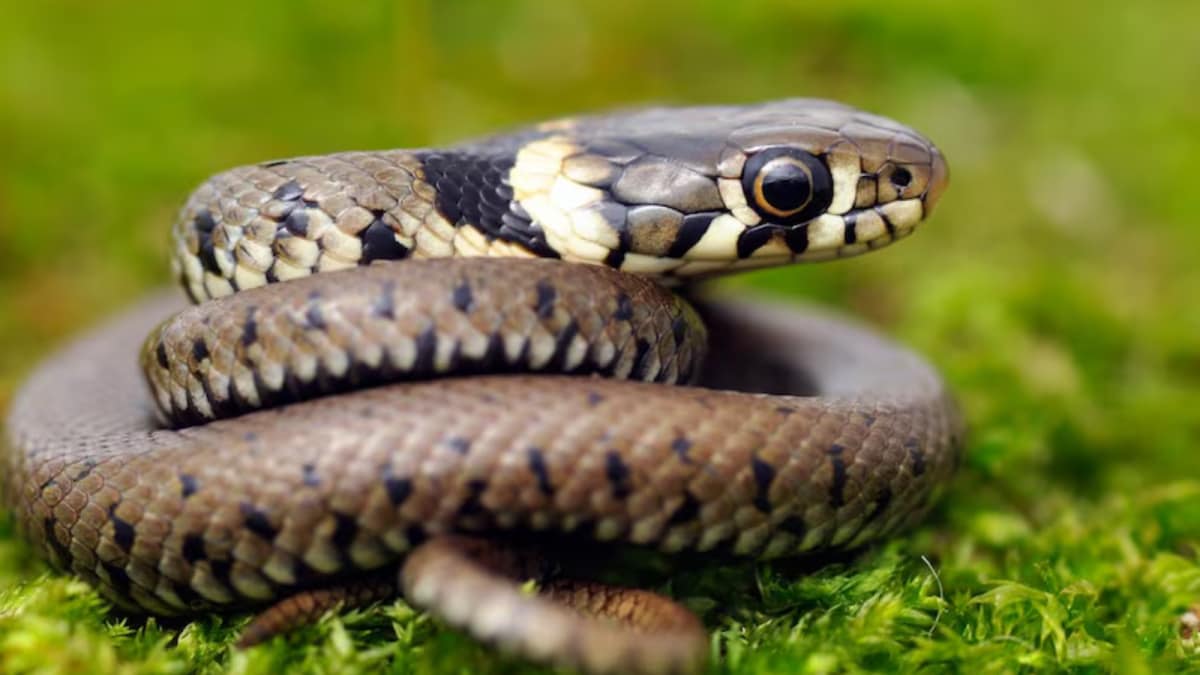Last Updated:
Snake sightings and bites are common, especially in monsoon. Experts explain how to stay calm, give first aid, and seek timely hospital care to prevent complications

Most snakebites happen silently, when people don’t even realise they’ve encountered a snake.
Snake sightings and bites are more common than many realise, especially during the monsoon or in rural areas. Panic often exacerbates the situation in such moments. To understand how to handle a sudden snake encounter or bite, News18 spoke to Dr Anurag Agarwal, Director of Emergency Medicine at Fortis Hospital, Noida, Uttar Pradesh.
Dr Agarwal explained that if you see a snake in front of you and it has not bitten you, the best course of action is to quietly move away as quickly and safely as possible. However, most snakebites occur silently, when people do not even notice the snake. In such cases, the first rule is not to panic or run, as running can accelerate the spread of venom in the bloodstream. Instead, stay calm, sit or lie down, and minimise movement.
If bitten, immediately remove any tight clothing, rings, or watches near the bite. Wash the wound with soap and water. Most importantly, apply a pressure bandage to slow the spread of venom through the lymphatic system. The bandage should be firm but not so tight that it blocks blood circulation. If a bandage is not available, use clean cotton cloth, a towel, or even a torn vest.
How To Bandage After A Snake Bite
Dr Agarwal emphasised that properly applying the bandage is the most crucial step. The bandage should be tied from the bite site upwards, firm enough to restrict lymph flow but loose enough to keep arteries open. Cutting off arterial blood supply can cause severe damage or even limb loss.
What Not To Do After A Snake Bite
According to Dr Agarwal, certain common practices are dangerous and must be avoided:
- Do not tie the bitten area too tightly.
- Do not apply ice or touch the wound.
- Do not attempt to suck out the venom.
- Do not consume alcohol, coffee, or painkillers like aspirin and ibuprofen, as these may worsen bleeding.
- Do not try to kill or catch the snake. If possible, note its size and colour, or take a photo from a safe distance to help doctors identify it.
- Never rely on home remedies; hospital treatment is essential.
Reaching The Hospital
There is no exact time limit, but reaching a hospital as soon as possible is critical. The severity of symptoms depends on the amount and type of venom. Anti-snake venom injections are the primary treatment, but only doctors can determine whether a bite is from a venomous snake.
Symptoms Of Snake Bite
Symptoms vary with the species. Cobra or Krait bites may cause neurological issues such as muscle weakness, breathing difficulty, numbness, slurred speech, drowsiness, or paralysis.
Viper bites can cause severe bleeding disorders, thinning of blood, internal bleeding, nosebleeds, blood in urine or stool, and vomiting of blood.
Dr Agarwal advises that in all cases of snake bit, whether the snake is venomous or not, the only safe option is to reach a hospital immediately. Correct first aid, calmness, and timely medical help can save lives.







